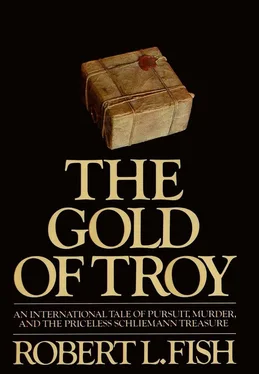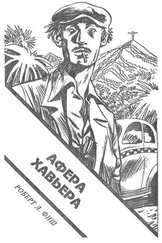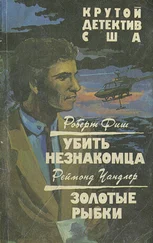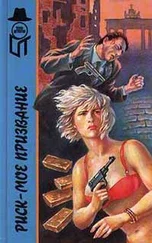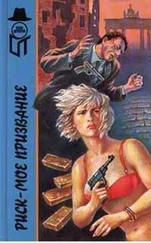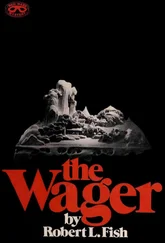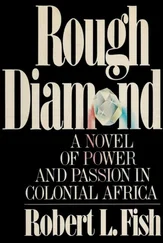“You mean, if he’s still here. I haven’t seen him.” The man shrugged. “Well, we can pass the word, that’s about all we can do. Where are you living?”
“I have a room in the Goeringstrasse” — Schurz smiled grimly — “what was the Goeringstrasse. It’s probably the Trumanstrasse, or the Stalinstrasse by now. Number 18, first floor in the back on the right. Make it fast, can you? It’s very important.”
“Important for you? Or for the party?”
“For both,” Schurz said, and started to stand up. He thought a moment and then sat down again. There was also the question of money. The people who had formed ODESSA, the organization dedicated to helping keep the party alive, were all big industrialists and had plenty of it, but it might be difficult to contact them. And there would be need to contact someone trustworthy in Wismar, or Barth, or any one of the Baltic ports — but he could be doing all this while waiting for Petterssen. He stood again, this time to stay on his feet. “Very much for both,” he repeated, almost to himself, and walked from the bar.
It was three nights later, when Schurz had about abandoned hope and was cursing Gruber for ever having put the idea in his head, that Jan Petterssen appeared at Schurz’s room. He was a very thin, extremely tall man with a horselike, long, sad face, and a shock of bright yellow hair that needed cutting badly, tucked out of sight under a ragged stocking cap. Schurz could hardly conceal his relief at sight of the man; by now he had been sure that Petterssen was either dead or long gone from the country. He sat his guest down, brought out a bottle of vodka traded for a genuine Nazi officer’s peaked cap, lightning insignia and all — his own, but the drunken Russian soldier had had no idea of that, of course — and asked Petterssen why he was still around. Petterssen shrugged sadly.
“My face,” he said wearily. “My height. My hair. They must be looking for me. It is easy enough to forge papers” — Petterssen had forged all the pound notes and the dollar bills printed in Germany, he spoke five languages fluently in addition to his native Swedish, and could handle any one of them on a bit of paper so that one would swear it was authentic — “but at every border crossing they are looking for me. They must be looking for me! They will want me for a war criminal, can you imagine? Me? An artist?” He shook his head at the patent unfairness of it all and took a healthy drink from the bottle. “I almost didn’t come here. I go out very little. But it’s only a question of time before I’m caught, I suppose. Very unfair... anyway, they told me it was important, so I came. Bent over to look like an old man to look short. It hurt my back.” He shrugged again and took another drink from the bottle.
Schurz was quite sure the occupying forces had more important people to search for than Jan Petterssen, but he could see no advantage in telling the Swede that. At least it had kept the forger in Berlin.
“It is important, very important,” he said and leaned forward, gently removing the bottle from Petterssen’s fingers. He wanted the man sober, at least until they had discussed the matter thoroughly. “I can get you out of the country with me. We’ll have to take a small case with us—”
“A small case? What will be inside it?”
“A treasure in gold.” Schurz did not feel it necessary to explain that it was not bullion, not something readily transferable into cash. “All you have to do is to forge some papers. In Russian. Can you do it?”
The vodka had taken a bit of the lugubrious expression from the narrow equine face. The sadness there was replaced with the pride of the artisan.
“Of course.”
“You still have your pens?”
“Not on me, for God’s sake! They’d shoot me on the spot if they ever caught me with those in my possession.”
“But they’re safe?”
“Yes.”
“And paper?”
“I have enough if you don’t want a book written.”
“Good!” Schurz took a deep breath and then thought a moment. He had long since thought of the possibility that Petterssen might also be useful in the matter of the financing of the project. “Do you also still have some of that counterfeit money — pounds or dollars, or whatever?”
Petterssen shook his head. “No. Not even samples.” Schurz bit back his disappointment. It would mean trying to locate one of the industrial members of ODESSA, and that would take valuable time. He should have been doing that before, but his time had been taken up with the matter of the boat, and besides, he hadn’t really believed in the true possibility of the project. Damn!
Petterssen reached over and took the bottle of vodka from Schurz’s hand, drinking deeply.
“But I’ve got plenty of good money, real money,” he went on. The vodka had relaxed him completely, made him expansive. He grinned. “I insisted upon payment in American dollars before I forged the foreign currency. Otherwise I would have been working for myself, if you see what I mean.” The smile disappeared as quickly as it had come, replaced by a thoughtful frown. His eyes narrowed as he studied Schurz. “But if you’ve got gold — bullion—”
“We need a boat,” Schurz said flatly. “It’s the only way to go and take the gold with us. I have someone who can travel from here to the Baltic without suspicion. He arranges the purchase of fish for the commissaries. He can arrange a boat for us for when we need it. But he says he knows the fishermen up there. They won’t rent or sell a boat for gold. Most of them have no way to tell if the gold is genuine or not. They’ve never seen any in their lives. They want American dollars or English pounds. I thought—”
“You thought they might be taken in by my counterfeit. They would have, too, with my stuff,” Petterssen said with pride, but then his face fell. “Only I have none.”
“You have dollars,” Schurz said and his voice was cold. “I want enough of them to arrange the boat. You’ll be paid. With interest.”
Petterssen looked at him. “How can I be sure?”
“Because I say so.” Schurz was beginning to get irritated. “Besides, you want to get out of Germany, don’t you? As you say, it’s only a question of time before they pick you up, and then—” He made a gesture, his hand across his throat and then swiftly raised in the air. Petterssen winced. There was a profound tone of truth in Schurz’s tone of voice, as there should have been since the threat was true for himself whether or not it was for the tall Swede.
“I know,” Petterssen said. The sadness had returned to his face. He raised the bottle; Schurz made no attempt to stop him. The tall Swede drank, put the bottle down and pushed it to one side, ready to properly discuss the matter. “Where will we be going?”
“Sweden,” Schurz said with assurance. “Your home.” In the past few days he had done a good deal of planning, even if most of it was ephemeral, depending as it did on locating Petterssen. “ODESSA has members there, and there is still sympathy for us and our cause among many influential people there. We can both be safe there.”
Petterssen wet his lips. “And rich.” He made it a statement, not a question.
“And very rich,” Schurz said, agreeing, and wondered that a man as clever with his hands as Jan Petterssen could possibly not realize he would never get off the boat in his country. “And very rich,” Schurz repeated.
The tall Swede nodded and leaned back, narrowing his eyes, concentrating on the paper he was about to begin forging in his mind’s eye.
“All right,” he said, once again the artisan. “What papers will you need, and what do you want them to say?”
Читать дальше
